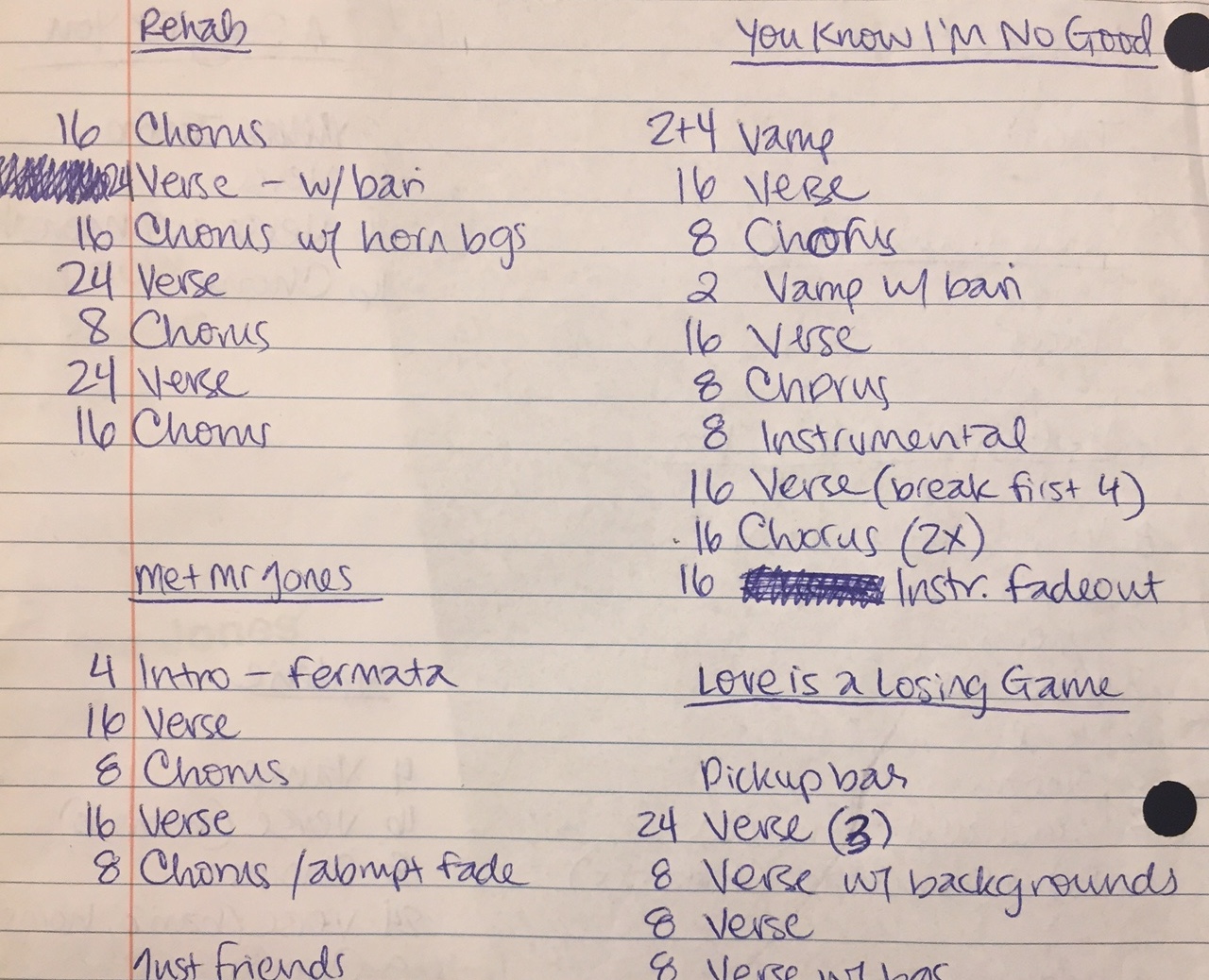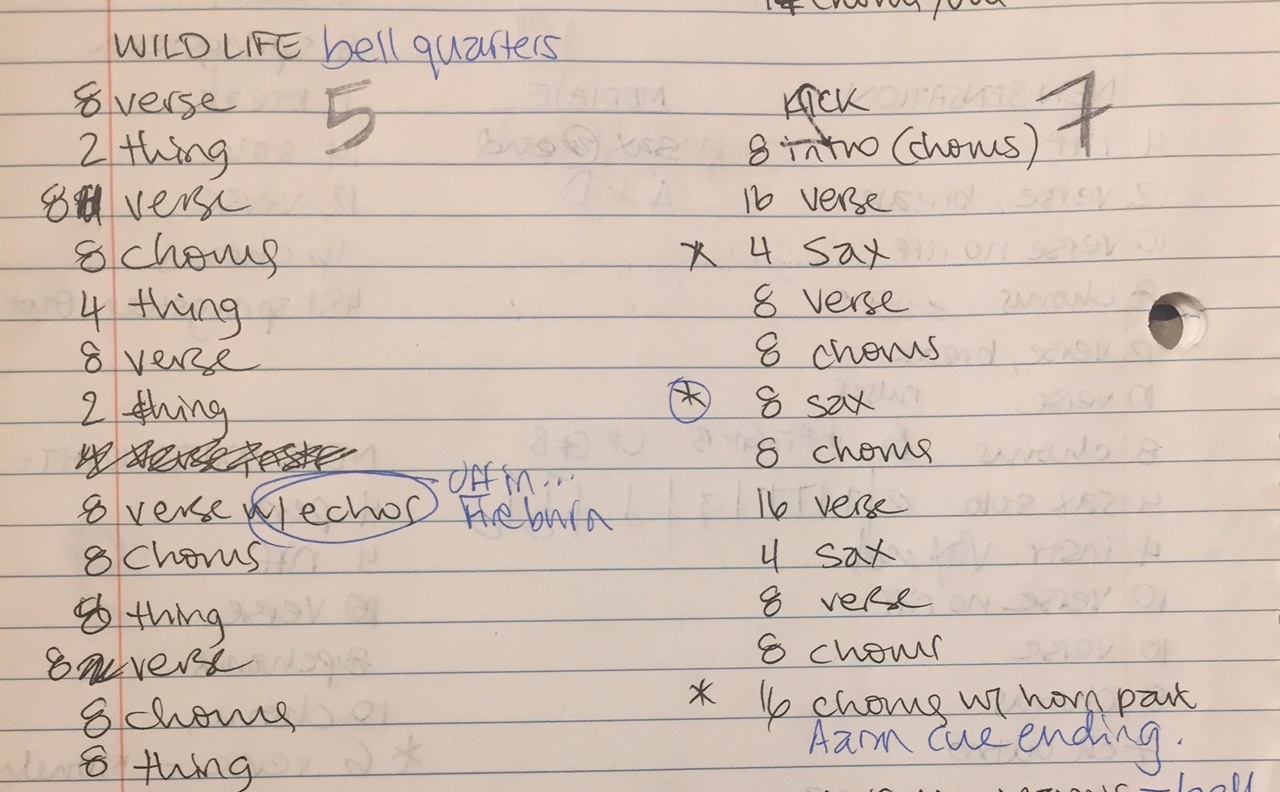Ruhee Dewji
Process
My main non-day-job gig right now is playing in a live karaoke band, simultaneously the most fun and most difficult gig ever. When I joined in January the list was already hovering around 300 songs, so you can imagine how daunting it seemed to try to learn them all, especially since I cover multiple instruments. I’ve been tinkering with ways to handle this for months.
My first attempt just involved listening to the entire playlist on shuffle all the time. This is a tiny bit effective, but 300 songs is way too many. There is no way your brain can handle all that—by the time something comes around on shuffle again, you’ve lost all the information you stored about it the first time. Step 1: pare way down. Focus.
The first level of song-learning is basic familiarity—just having an idea of how it goes. The more you hear something, the better it will stick (you know how you can hum all the guitar solos on your favourite albums?). A smaller chunk of songs on shuffle all the time makes this more manageable and starts building the foundation.
The problem with the listening-only method, however, is that it’s entirely passive. Your ear is getting familiar enough but your muscles and memory aren’t. You can probably follow along to a song perfectly while it’s playing, but when you’re playing it, uncertainty crops up: wait, do we have another verse here, or is it the solo? When does the chorus repeat? Whoops, we skipped the bridge (again). The cues you get used to are not always there and so things get messy quickly.
Enter the active portion. Since just listening wasn’t doing the trick, I started mapping out the song form while I listened, forcing my brain to pay attention to and classify all the component parts. Much of the time, this means I have a better idea of what’s happening (I especially do this if I need to learn a song very quickly, like “gig’s in three hours” quickly—hypothetically).
Sometimes they are fairly simple.

As forms get a little more complex, I sometimes start developing weird shorthand.

This method obviously doesn’t help with much more than song form and cues: things like chord progressions, riffs, etc are left out. So I started making different cheat sheets.
This is among the first ones I made, and it’s absolutely terrible (what was I thinking?):

(Astute readers will note these are not the chords to “Search and Destroy”—this one was for tenor sax, which plays in a different key than most instruments.)
Eventually I figured out how to make them actually helpful.


Note: Multiple bandmates have pointed out that the “Baby One More Time” card is wrong. It’s missing the bridge! Always evolving, etc.
Here’s the thing about these cards: the process of making them and distilling the most important parts is almost more helpful than the cards themselves are. I often get stalled at this point because reading cards means I don’t need to remember anything, so I don’t; forcing yourself to work something out in the moment is a much more effective way to remember.
So with that in mind, where I’m at now: pare down to 5 or so songs at a time and listen to them on repeat as much as possible; try to play through them without any chord sheets and figure out the harmonic progression; write a cheat card with help from whatever online tab/chords are necessary; and then add to practice rotation. I try to go over a few old ones a day.
All that to say: if you’re trying to learn something (anything), go off book early. Following a tutorial or a chord sheet or instructions is great, but the more you’re following, the less you’re retaining. Get uncomfortable. Screw up a lot. The songs I remember the best are the ones that I royally messed up on stage (I will never again forget the key change in “Surrender”) and the ones I made myself try to figure out at home before looking at a chord chart. It’s important to note that learning stuff is hard and weird and kind of hurts a little—if it feels easy, you probably won’t remember it tomorrow.